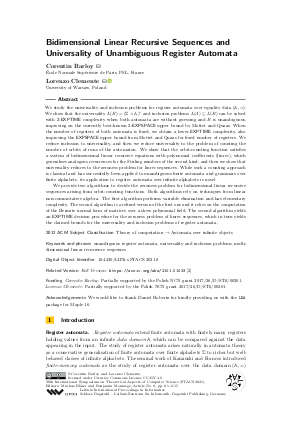LIPIcs.STACS.2021.8.pdf
- Filesize: 0.98 MB
- 15 pages

 Creative Commons Attribution 4.0 International license
Creative Commons Attribution 4.0 International license

































Feedback for Dagstuhl Publishing